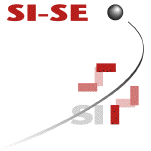|
Communication and Cooperation in Distributed Software Project Teams
Prof. Paul Layzell , University of Manchester
With a growing demand for software systems and an
increase in their complexity, software development and maintenance is
no longer the preserve of individual designers and programmers, but is
a team-based activity. Indeed,
development and maintenance has always involved a wide variety of
stakeholders (customers, designers, programmers, maintainers, end-users)
making the need for communication and cooperation an inherent
characteristic.
Changes in support technology, economic factors and
globalisation of software development and maintenance is increasingly
resulting in the geographical separation of personnel.
Where such distribution of personnel occurs, it is clearly
important that there is high quality communication and cooperation.
This presentation will bring together the work from
various studies conducted by the author into collaborative software
engineering, highlight key experiences and identifying issues and
challenges for the future.
Collaborative Requirements Engineering and Management
Prof. Ann M. Hickey, Ph.D., University of Colorado at Colorado Springs
Collaborative
requirements engineering and management is the discipline of enabling
diverse stakeholder groups to work together effectively to identify,
select, document, update and track the requirements for a software
system. Given the increasing globalization of business and IT, these
stakeholders often include multiple customers, users, project managers,
developers and others, frequently from a wide variety of organizations
and geographic locations, with very different perspectives and needs.
The goal of collaborative requirements engineering and management is to
facilitate the collaboration of these stakeholders throughout all
stages of the requirements process. The purpose of this talk is to
emphasize why collaborative requirements engineering and management is
important for project success, discuss when it should (and should not)
be used, and compare alternative collaborative facilitation approaches.
A Unified Model for Collaboration and System Modeling in Global Projects
Prof. Bernd Brügge, Technische Univ. München
Distributed Global software development introduces many new challenges that single site development approaches do not
address. Reduced communication bandwidth and availability, cultural
differences, lack of awareness of work at other sites, and lack of decision transparency are a few examples among many. Current software engineering artifacts and communication mechansims are
insufficient for synchronous collaboration. Source code is not self
documenting. Documents do not contain sufficient context for decisions and become obsolete quickly. As a result, extensive travel
by participants is required, offsetting the advantages of distributed development.
In this talk, I will present an approach in which both system and collaboration artifacts are represented in a single, shared environment accessible to the project participants. System
models, such
as requirements, architectural components, and detailed design, are represented as a graph of nodes related by typed
relationships. Collaboration artifacts, such as notes, rationale, request for
clarification, and action items, are represented using the same
mechanism, thus allowing collaboration artifacts to be linked to their relevant system model elements. The advantages of putting
equal emphasis on both system and collaboration artifacts are many: traceability paths through both types of models can be used to identify implicit dependencies between seemingly unrelated parts
of the system; contributors can be identified not only from who created specific model elements, but also from whom posted notes, issues, or todos attached to the model; rationale behind decisions
and the resulting action items can be captured and organized according to which parts of the system they are relevant. In conclusion, I will present Sysiphus, a modeling environment for distributed
projects, which we have developed at the Technische Universitaet Muenchen to realize these concepts.
Open-source Softwareentwicklung als Modell für kollaborative Realisierung
Dr. Stefan Koch, Wirtschaftsuniversität Wien
Open-source
Softwareentwicklung stösst auf zunehmendes Interesse in Forschung und
Praxis, insbesondere aufgrund des enormen Erfolgs von Projekten wie dem
Linux Betriebssystem mit Paketen wie GNOME und KDE, Apache und sendmail.
Diese Beispiele beweisen, dass die stark dezentralisierte Form der
Softwareentwicklung in open-source Projekten zu qualitativ hochwertiger
Software führen kann. Dieser Vortrag gibt eine Übersicht über die
Prinzipien der open-source Softwareentwicklung sowie bisherige
empirische Erkenntnisse dazu und zeigt, was man von diesem Ansatz für
die kollaborative Softwareentwicklung im Allgemeinen lernen kann.
Erfahrungsbericht Kollaborative Softwareentwicklung im VISTA Projekt
Martin Koblet, IBM
Abstract folgt.
Erfahrungsbericht Offshore Development Best Practices
Georg Molter, Zühlke
Offshore durchgeführte
Software-Entwicklungsprojekte zeichnen sich wegen der räumlichen
Distanz, aber auch wegen der unterschiedlichen Kulturkreise und
Mentalitäten der Beteiligten durch besondere Komplexität und
Herausforderungen bezüglich Infrastruktur und Kommunikation aus. In
der Präsentation wird basierend
auf konkreten Erfahrungen aufgezeigt, wie man diesen
Randbedingungen durch Ergänzung und Anpassung der Vorgehensweise im
Projekt systematisch begegnen kann.
|


